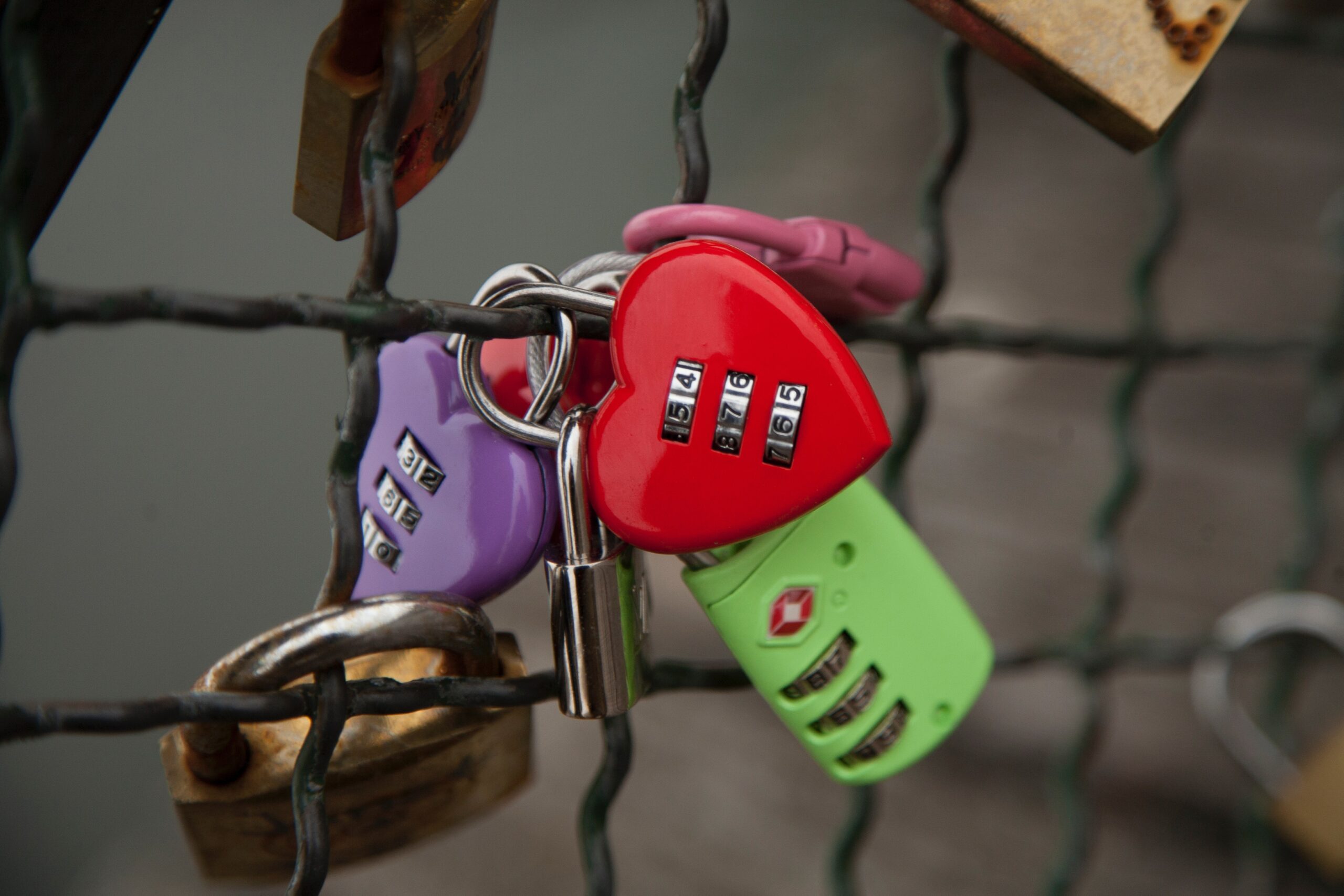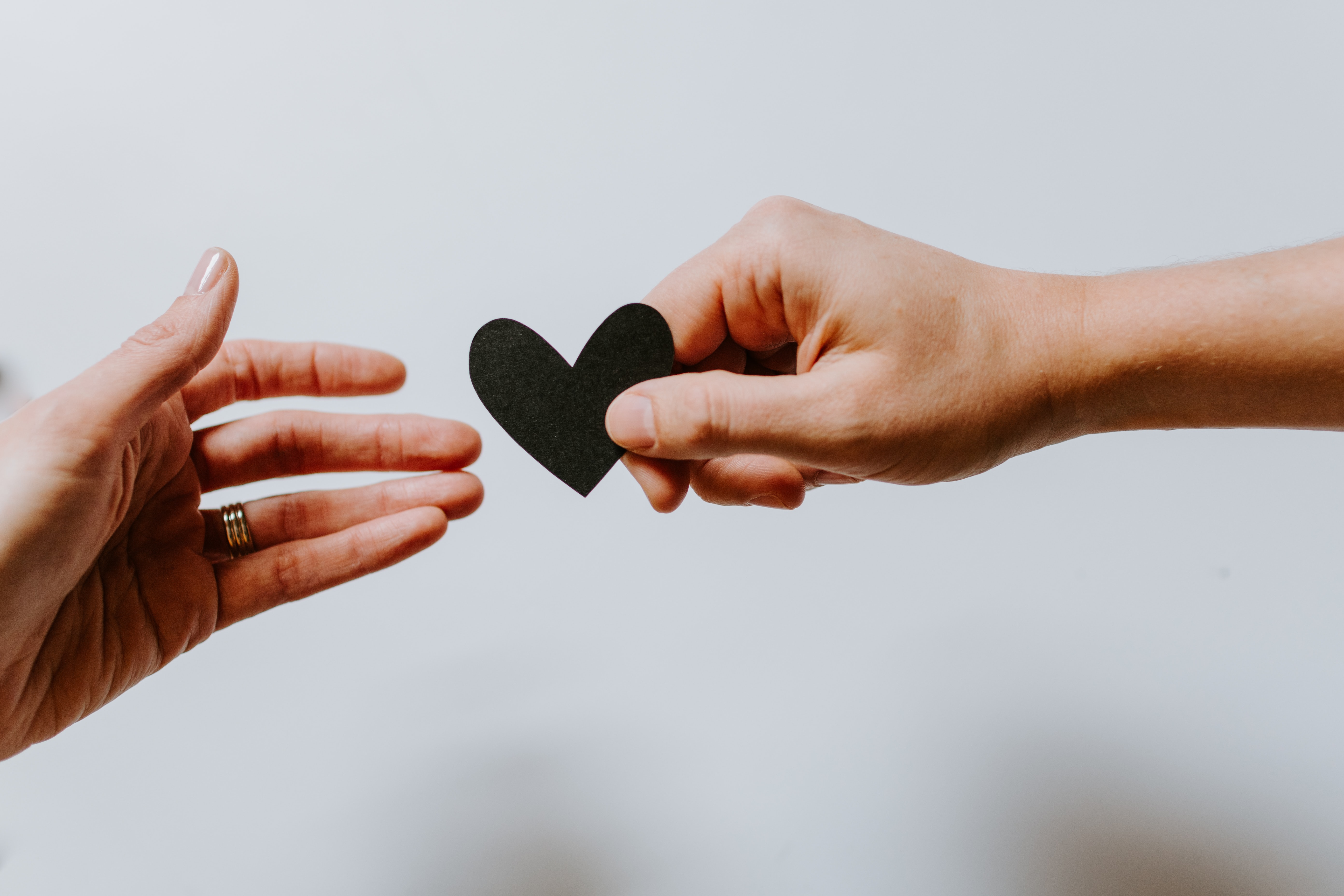The pain of unrequited love is real. First of all, we are sorry if you have been going through such a situation. One of the most terrible things you can go through is loving someone who doesn’t love you. You may have read about unrequited love, but reading about it doesn’t make it feel as real as experiencing it. We can help you find possible ways on how to stop loving someone who doesn’t love you.
What Exactly is One-Sided Love?
Ever had a crush on a famous person who was unaware of you? Have unresolved feelings for an ex after a breakup? Or perhaps you secretly harbored feelings of profound affection for a close buddy.
These incidents illustrate unloved or unrequited love. You might not be overly upset if your feelings don’t develop much past a serious crush. But when you truly love someone, the hurt of one-sided love can persist
The Different Types of One-Sided Love
You’ve probably had at least one romantic interest in your life who didn’t share your sentiments at some point. Unfortunately, almost everyone has had this experience. However, it’s not the only way to get through unrequited love.
Unrequited love can manifest itself in a multitude of ways
- Wishing for someone who isn’t available or lacking in similar emotional feelings
- Enduring sentiments for an ex after you both got separated, shared emotions between parties involved in other relationships
- Casual dating can also result in unrequited love if your feelings grow deeper but the other person’s desire never intensifies.
Having a Love-Only Relationship
There are explanations for why the person you love doesn’t feel the same way, whether they are someone you shouldn’t love or simply don’t love you enough. And being aware of those causes can motivate you to take the necessary action to overcome them.
Take into account the following reasons it might be happening to you:
- They only want to be “friends with benefits” or friends.
- They pretended to be in love with you but broke off when things got serious.
- Nobody can see you. They view what they desire to view (what you do for them).
- They put a lot of effort into winning you, but the focus was on the victory and not on you.
- They have no idea how to love you in the way you deserve to be loved.
- They don’t want the challenging aspects of commitment; they just want to be in love.
- They can’t love you the way you deserve because they’re not in a good place.
Whatever justification you think best describes the person you love, it is obvious that they are not going to fall in love with you overnight. And waiting around and hoping they finally realize what they could have with you is a waste of time and energy that could be put to better use.
One-Sided Love Lead To Self-Harm
The stress of a one-sided relationship can also have physical and emotional consequences. “You may experience difficulties with how you eat, walk, and take care of your overall health. You may also develop bad sleeping patterns and experience feelings of anxiety, fear, and depression. It is advised that you take steps to regulate this problem before it worsens and has negative effects.
Signs That You Are In a One-Sided Love Relationship

Here are a few additional details that could indicate the love isn’t mutual.
The person you’re in love with doesn’t appear eager to develop any connection
You start extending invitations for extended periods of time because you want to develop a deeper connection. You try to approach closer, but they retain their distance. Perhaps they refer to what you would consider a date as a “hangout,” or they bring other friends to the exclusive gathering you had arranged.
Their lack of interest may also be evident in the way you two feel about each other. For instance, if you try to get information from them about their ideas and values, they might not be open with their responses or retort with inquiries along the same lines.
Denying signals that show they’re not interested
In any case, unrequited love is painful. It’s common to go through a stage of denial to cope with the pain.
Some people are just loving and open, which can be misleading when you’re attempting to measure their interest in you. Hug or touch you casually compliment you confide in you or ask your opinion.
Having a lot of negative feelings
Unrequited love frequently involves a cycle of feelings.
This pattern typically starts with optimism as you develop strategies aimed at sparking a love relationship. However, if these efforts are unsuccessful, you could experience feelings of rejection and related emotions, including sadness, anger, resentment, anxiety, and shame.
Having trouble putting them out of your mind
According to Egel, “unrequited love is typically accompanied by a sense of longing that might start to dominate your emotions and corrupt reality.” Throughout the course of the day, in many facets of your life, you might experience feelings for the person.
You could, for instance:
- to find out if they liked your post, check Facebook (or shared anything you can comment on)
- confess your sentiments in letters or texts that you don’t send.
- shop in their area in the hopes of running across them
- Talk about them
- often envision scenarios where you can express your feelings to them
They take a while to respond to calls, texts, and invitations
Feel like you have to put in the greatest effort just to hang out? Perhaps they reply to emails slowly. Or they may reply, “Maybe!” when you invite them out. I’ll let you know” and wait until the last minute to confirm.
There might be another explanation for their actions if this trend continues and they don’t provide any justifications.
Why Is It So Difficult To Let Go?
Why is it so difficult for us to learn how to let go of a person we love? We enjoy clinging to things, circumstances, and people in particular because they satisfy our desire for security. One of the six human needs that underpin all of our decisions is a certainty. There is frequently a great deal of uncertainty involved with ending a relationship and moving on. Even if your relationship had ended or one or both of you were really unhappy, there was still a sense of certainty that was soothing.
How To Let Things Go More Quickly
Here are some amazing tips to help you let go if you’re attempting to move on from an unpleasant experience but aren’t sure where to begin.
Put in your own effort
It’s very necessary to put your own needs first. You must decide whether to deal with the hurt you’ve felt. Bring yourself back to the present whenever you consider a person who has hurt you. Then, concentrate on something for which you are grateful.
Consult a professional
You might find it helpful to speak with a professional if you’re having trouble moving past a traumatic event. Sometimes it’s challenging to put these suggestions into practice on your own, so you’ll need an experienced professional to help you out.
Adopt a gratitude Attitude
When you are grateful, abundance arrives, and fear vanishes. The pain and worry you experience when you learn to let go of someone can therefore be countered by engaging in acts of appreciation. Set aside your expectations and concentrate on being thankful for the shared experience. Realizing that life happens for you, not to you, will help you make this minor perspective change. You’ll lessen the rage you feel toward the other person and instead value what you got from the connection when you’re able to see the lesson in every experience and be grateful for it.
To combat the upsetting ideas, come up with a positive slogan
You can either advance or remain stuck depending on how you speak to yourself. Having a mantra that you repeat to yourself when you’re experiencing emotional distress can frequently help you refocus your thinking.
For instance, Try saying something uplifting like, “I feel fortunate to be able to find a new path in life”.
Ways To Avoid The Feeling of One-Sided Love

Know Your Limiting Beliefs
Are you frequently bothered by ideas like “I could never be alone” or “I’ll never meet someone else who loves me”? Recognize that while these limiting ideas have the ability to shape your reality, you also have the power to change them. They are not facts.
Replace them with affirmations that are powerful, such as “I love myself and deserve the best” and “I am open to what the universe has in store for me.” At first, you might think these affirmations are goofy, but after incorporating them into your daily routine, you’ll start to experience their benefits.
Stop Blaming Others
Don’t let the truth deter you from letting go of someone you love, but don’t let it change your path because of it either. Human nature compels us to blame someone else or an earlier event rather than ourselves.
This is why, at the end of a relationship, you may blame your ex or someone else for something awful that happened to you. You cannot, however, let negative events determine your destiny, even if the facts are dreadful or sad.
Instead, make use of your experiences to motivate you to study and develop so you may build a strong bond with another person.
Practice Acceptance
Acceptance implies letting go of shoulds and should’ve. It involves accepting where you’ve come from without putting yourself down or speculating about what might have been.
A component of developing mindfulness is acceptance. There is no place for dwelling on the past or on what might have been (but obviously won’t happen). It means accepting all of your emotions without berating or humiliating yourself for them.
Talk about it
Although it may be scary, talking to the other person about how you feel is frequently the best course of action.
Talking about such things can be helpful if you notice some confusing indications from the person you’re interested in, such as flirtatious conduct or affectionate gestures. You might not always be able to discern exactly how someone is feeling until they express it to you.
Feel excessively demanding? It’s also OK to simply discuss your problems with a reliable friend. Sometimes, relief comes from simply expressing these emotions.
Put other relationships first
When someone experiences heartbreak, they frequently “forget” about other important relations in their lives.
As you attempt to heal, your friends and family can assist you. They might even be able to offer some advice or wisdom based on their own experiences.
If you’re attempting to recover from the aftereffects of a toxic relationship, loved ones can also offer support and direction. Simply be mindful of how your encounters make you feel.
It could be a good idea to limit your time with someone if you feel like they are criticizing you or your decisions or are making you feel bad in other ways.
Be prepared that it can take some time
Love-related emotions can and do diminish, but it usually takes time. And experiencing a great deal of discomfort in the interim is very natural.
You can use the following advice to get through this time:
- Don’t be too hard on yourself.
- By telling yourself what you would say to a friend in a similar circumstance, you can cultivate self-compassion.
- Recognize that it’s normal to feel pain.
- Keep in mind that the pain won’t last forever.
Accept this reality
This might be hard for one of you but when you accept and redirect your thinking, your emotions will follow. Do not forget that moving on is about learning to live with your emotions and reducing pain, not about forgetting someone.
Once you’ve done that, their significance in your life will gradually reduce, and your unrequited feelings will vanish.
Give yourself a break for a while
Although it can seem like an obvious step, this is an essential one.
The distance can be your best friend once you’re ready to move on. Even a single text, phone call, or Snapchat can bring back emotions you thought you had finally put to rest.
Unless you absolutely need to, such as if you share child custody or work together, you might want to avoid getting in touch with the person.
It might be a good idea to spend time with other friends for the time being if you used to spend a lot of time hanging out with your friends.
The experience in a new light
Do you believe the stories you tell yourself? There’s a strong possibility what you’re telling yourself isn’t entirely accurate if you’re still reeling from learning that the person you love doesn’t love you back. It’s far too simple to fall prey to distorted thinking.
Because this person doesn’t return your love, you may believe that you are unlovable.
Believing that you must have done something incorrectly and that you must rectify it.
Believing that letting go of someone means “giving up on” them.
What would be a more accurate, uplifting, or useful way to describe what you are currently experiencing? If someone you loved were in your place, how would you describe it?
Let yourself grieve your losses
Healing takes time. And it won’t happen at all unless you give yourself permission to feel sorrow, acknowledge the reality of your circumstance, and move on.
You’re free to feel as though you’ve lost something significant. It’s difficult to let go of what you once believed you had with this person or what you imagined would progress. Be gentle to yourself. Be patient as well.
Give yourself the space you require to mourn. Never leave any aspect of yourself neglected.
Radical self-care should be practiced
Self-care is something you need right now. Think of it as a part of the healing process and of therapy. If any of the following could help you feel more like yourself again, consider it:
bathing in perfumed water or taking a hot shower.
getting a facial or new haircut.
engaging in an activity that you appreciate but the other person does not.
Make a list of the things you have sacrificed in order to spend more time with this individual, who doesn’t treat you with the respect you are due.
Then, as you progress through this, carry out at least one of those tasks each day.
Marie Kondo everything that makes you think of them
Remove as many items as you can from your home that have this person’s likeness in them. Consider a technique to make anything that reminds you of them that you can’t afford to replace brand-new. Redecorate it or alter the atmosphere to make it feel more like something you.
Even though they once did, you are aware that none of their presents make you happy. In a sense, clinging onto those things is holding onto them.
Think of those presents as back door keys that the giver can use whenever it suits them to enter your life.
You Have The Ability To Quit Loving Someone Who Does Not Love You

What will you do today to take a step back from this person and give yourself what you need? Now that you know how to let go of someone who doesn’t love you,
The longer you cling to someone, the more pain you will carry from loving someone who doesn’t love you. Give freedom and fullness to oneself. Neither of those is dependent on another person.
Never let a day pass without loving yourself.
The Ending Note
Humans are exceptional creatures with complex emotions. It’s challenging to simply turn off your feelings for someone, no matter how badly you want to stop loving them.
Those emotions might always be present in some form throughout your life. Even when we wish something to disappear, love doesn’t always do so. However, even if you are unable to completely stop loving someone who has hurt you or doesn’t love you, you may still control your feelings in a healthy, constructive way to avoid further pain.
If you’re having trouble, counseling can provide a secure, judgment-free environment in which to work through your feelings.
FAQs
Is it OK to keep loving someone who doesn’t love you?
Anyone can experience unrequited love, but if you start to notice a trend, it can be more than just bad luck. If it persists, loving someone who doesn’t love you can be a symptom that your conception of love is overly idealized.
How do you let go of someone who doesn’t want you?
How do you let go of a person who is not interested in you?
Giving up is not at all simple. You will undoubtedly endure a lot of pain. But in this case, your perspective is important. Either you let this break your heart or you get over it and live your life to the fullest. So, the choice is all yours. Recognize that if you want to, you can heal this condition.
What is it called when you love someone who doesn’t love you?
Unrequited love is defined as the love that is not returned or recognized. We may suffer anguish, grief, and shame as a result of the one-sided nature of the experience. Unrequited love isn’t always obvious and can lead to a lot of misunderstanding and emotional pain, despite what you might think.
How do you accept the fact that he doesn’t love you anymore?
Here are some of the tips that will help you accept the fact that he/she doesn’t love you anymore:
- Give your wounds time to heal.
- Never blame yourself;
- Take good care of your mental and physical health
- Try some physical activities
- Think of the positive aspects
Why do we fall from one-sided love?
One-sided love generally refers to the sensation of loving someone who doesn’t feel the same way about you. In conclusion, one-sided love is sometimes known as infatuation or any other form of attraction, but it also includes deep love. This emotion is for someone who doesn’t feel the same way for you.

